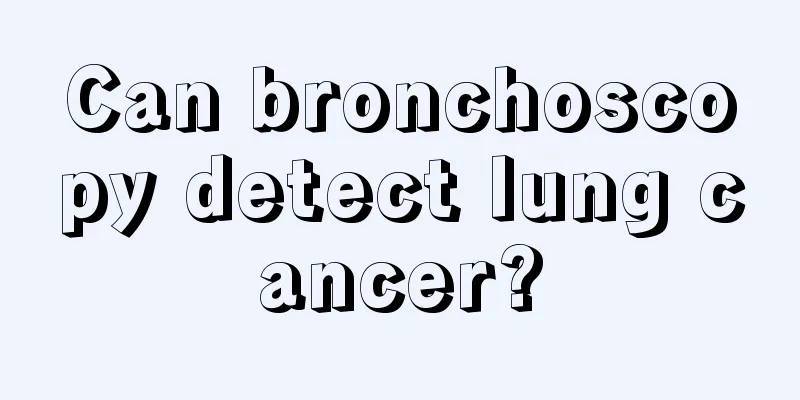What causes nasopharyngeal cancer?

|
The occurrence of nasopharyngeal carcinoma is related to multiple causes such as genetics, environmental factors, and viral infection. Treatment requires radiotherapy, chemotherapy, or surgery according to the condition. The cause of nasopharyngeal carcinoma is complex, involving genetic susceptibility, Epstein-Barr virus infection, environmental exposure, etc. Early detection and standardized treatment are the key. 1. Genetic factors play an important role in the occurrence of nasopharyngeal carcinoma. People with a family history of nasopharyngeal carcinoma have a significantly increased risk of the disease, which is related to the genetic susceptibility of specific genes. Studies have found that certain gene mutations may increase the risk of nasopharyngeal carcinoma. It is recommended that people with a family history undergo regular nasopharyngeal examinations. 2. Epstein-Barr virus infection is an important cause of nasopharyngeal carcinoma. Epstein-Barr virus is widely present in the population, but only a small number of infected people will develop nasopharyngeal carcinoma. Viral infection may cause abnormal proliferation of nasopharyngeal cells and eventually form tumors. The key to preventing Epstein-Barr virus infection is to maintain good personal hygiene habits and avoid close contact with infected people. 3. Environmental factors are also an important cause of nasopharyngeal cancer. Long-term exposure to certain chemicals, such as formaldehyde and benzene, may increase the risk of disease. Bad living habits such as smoking and drinking can also increase the incidence of nasopharyngeal cancer. Improving the living environment, reducing exposure to harmful substances, quitting smoking and limiting alcohol consumption are important measures to prevent nasopharyngeal cancer. 4. Eating habits are closely related to the occurrence of nasopharyngeal cancer. Long-term consumption of pickled foods, such as salted fish and pickled vegetables, may increase the risk of nasopharyngeal cancer. These foods contain carcinogens such as nitrosamines. It is recommended to reduce the intake of pickled foods, increase the intake of fresh vegetables and fruits, and maintain a balanced diet. 5. There are many treatments for NPC, and they need to be selected according to the condition. Radiotherapy is the main treatment for NPC, suitable for patients in the early and middle stages. Chemotherapy is often used for patients in the late stages or combined with radiotherapy to improve the efficacy. For some patients, surgery may be a necessary treatment, especially when the tumor is large or the radiotherapy is not effective. The prevention and treatment of nasopharyngeal carcinoma requires comprehensive measures from many aspects. Understanding the causes of nasopharyngeal carcinoma, taking effective preventive measures, early detection and standardized treatment are the key to reducing the incidence of nasopharyngeal carcinoma and improving the cure rate. It is recommended that people with high-risk factors undergo regular nasopharyngeal examinations to detect and treat nasopharyngeal carcinoma in a timely manner. |
<<: What tests can confirm nasopharyngeal carcinoma in the early stage?
>>: What conditions cause vaginal bleeding
Recommend
How long is the survival period of breast cancer
The survival period of breast cancer is mainly re...
What is the reason for back pain from staying up late
As modern people have more and more entertainment...
I get diarrhea if my stomach gets a little cold
Diarrhea is a very common phenomenon in life. Man...
What is Fibrous Histiocytoma? Learn about Fibrous Histiocytoma
What is fibrous histiocytoma? Generally, benign f...
What are the measures to prevent lung cancer? You must know these things to prevent lung cancer
Lung cancer is a disease that makes many people f...
Treatment of epidemic hemorrhagic fever
The treatment of hemorrhagic fever should be carr...
Gamma Knife treatment range
When many people first heard about Gamma Knife, t...
Symptoms and common signs of mediastinal malignant tumors
Generally, benign mediastinal tumors have no symp...
Detailed introduction to the specific treatment methods of cardiac cancer
Cardiac cancer is an extremely serious disease th...
What causes dry and stinging skin
When dry skin and stinging occur, it is important...
What are the advantages of percutaneous interventional treatment for liver cancer? Here
The advantages of percutaneous interventional tre...
The effect of hot compress with salt water
We all have blood vessel blockages at ordinary ti...
What is the reason for difficulty breathing at night
If breathing difficulties are severe at night, it...
What is arrhythmia? Know the causes and symptoms early
The most common causes of arrhythmia are some hea...
What does kidney disease mean
In daily life, many people are diagnosed with kid...









